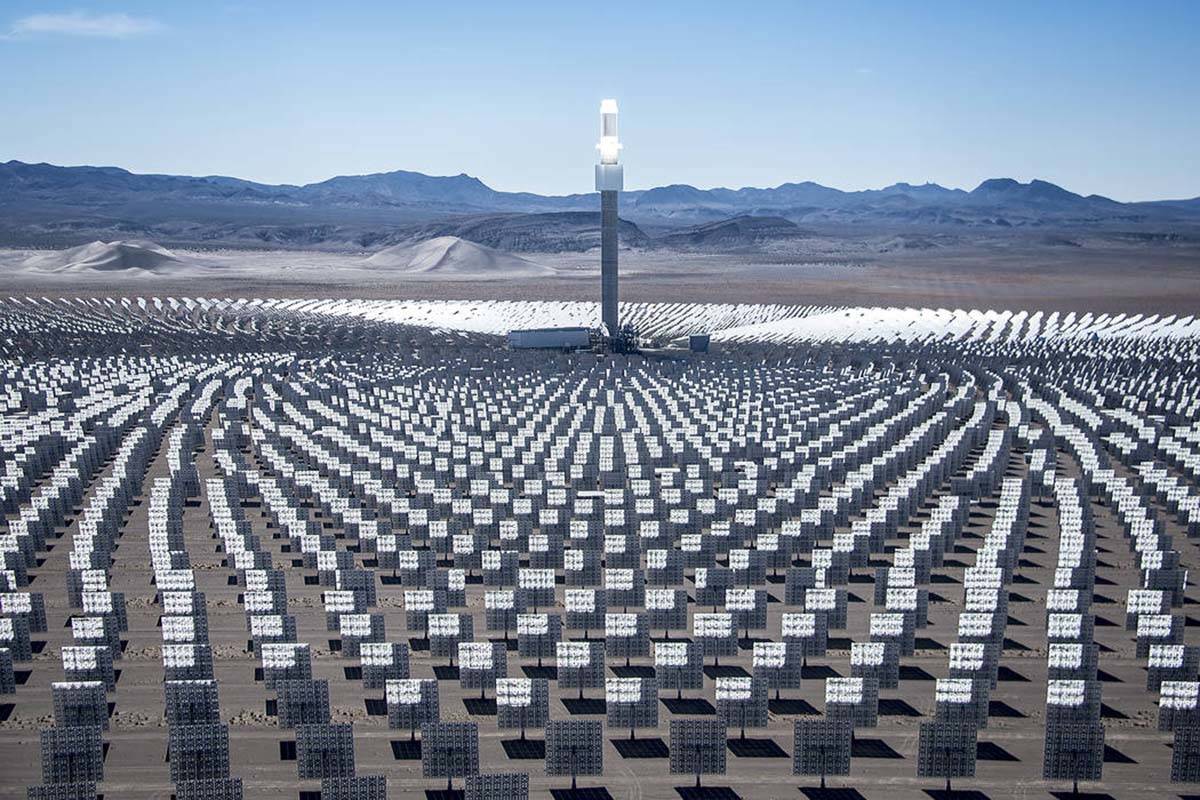DOE, Tonopah Solar come to an agreement
The Department of Energy announced a $200 million settlement, earlier this year, to recover the taxpayer funds from the Crescent Dunes Solar Energy Project near Tonopah, a 110-megawatt project that was touted as the world’s largest molten salt power plant.
The $1 billion Crescent Dunes secured $737 million in loan guarantees from the Obama administration in 2011 and received bipartisan support from an array of officials including then-Senate Majority Leader Harry Reid, D-Nevada, and Nevada’s former Republican governor, Jim Gibbons.
The plant was owned by Tonopah Solar Energy LLC, a subsidiary of SolarReserve, a privately held company based in Santa Monica, California. It was supposed to deliver electricity to NV Energy, its sole customer under a 25-year fixed-price contract.
Tonopah Solar Energy on Friday received court approval for its disclosure statement in its Chapter 11 bankruptcy proceedings and is moving toward an Oct. 27 confirmation hearing of its plan, according to court documents.
Crescent Dunes was built on 1,600 acres of the BLM land outside of Tonopah. The facility started commercially operating in November 2015, but it experienced the first major problem in October 2016, when one of the hot salt tanks began to leak. The issue prompted an 8-month shutdown of Crescent Dunes.
Over the years, the project was plagued by a series of technical and management issues. It frequently missed its energy output goals for NV Energy.
According to federal reports, the Crescent Dunes Solar Energy Project had no energy sales during the first and second quarters of 2017. Months following the repair of the first leak, quarterly sales have been significantly lower than before.
The project reported $106,451 in profits during the second quarter of 2019, according to the report that was filed with the Federal Regulatory Commission. During the same quarter, the plant reported only one line operating. The average price in megawatts per hour at Crescent Dunes during the time was $139.46, according to the records.
The most recent outage at Crescent Dunes occurred in April 2019 and still continues.
NV Energy terminated its power contact with Crescent Dunes in October 2019, after the facility “failed to produce” the required amount of energy, according to a lawsuit that was filed in Delaware.
While the operation of Crescent Dunes was mired in problems, its technology that was hailed as cutting-edge at the time when it first opened, became obsolete over years, as it was outpaced by much cheaper costs of the photovoltaic energy.
The Department of Energy took over the control for Crescent Dunes in August 2019, and SolarReserve filed a lawsuit in Delaware trying to reverse it.
The plant’s design featured 10,000 mirrors surrounding the 640-foot tower. The mirrors were supposed to heat up salt in the tower, and the heated salt would boil water which would produce steam and in turn, create power. Crescent Dunes was often hailed for its ability to store solar energy when the sun wasn’t shining.
The tower of the plant was constructed by SolarReserve, the rest of the plant was built by ACS Cobra, a Spanish company that also designed the salt storage tanks.

















